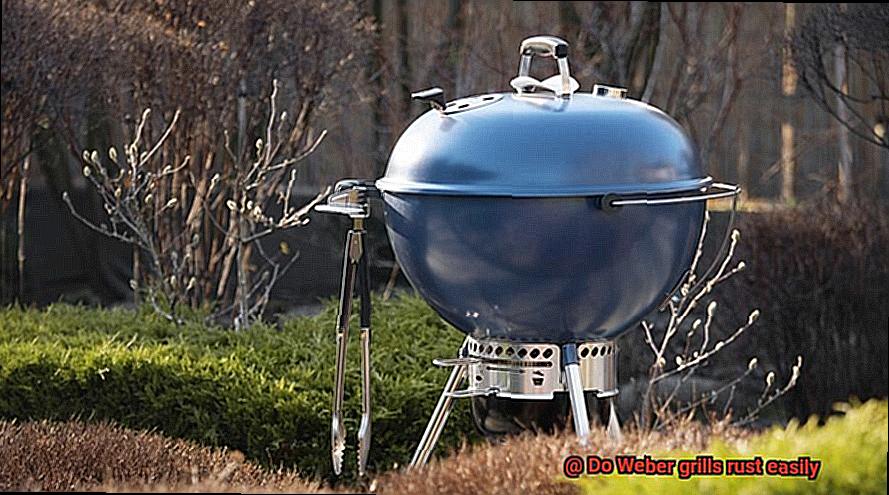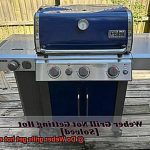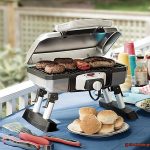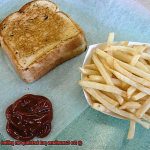Hey there, grill masters. Whether you’re a seasoned pro or just starting out, you know that the right grill can make all the difference in your cooking game. And when it comes to top-of-the-line grills, Weber is a name that stands out from the crowd. With its unbeatable durability, versatility, and performance, Weber has become synonymous with outdoor cooking excellence.
But here’s the thing: as much as we love our Weber grills, there’s always that nagging question at the back of our minds – do they rust easily? After all, no one wants to invest in a grill only to have it start deteriorating after just a few uses. So today we’re going to tackle this issue head-on and give you all the information you need to keep your Weber grill looking and performing its best for years to come.
We’ll be delving into everything from the materials used in Weber grills to which parts are most prone to rusting. We’ll also be sharing some tips and tricks for preventing rust from taking hold on your beloved grill, as well as some handy methods for treating any rust spots that do crop up. So if you’re curious about whether or not Weber grills are susceptible to rust (spoiler alert: they can be.), then stick around – we’ve got all the juicy details coming up.
Contents
What Is Rust?
Rust is the bane of metal objects, an unsightly corrosion that slowly eats away at its surface. This chemical reaction occurs when metal is exposed to oxygen and moisture, forming a reddish-brown layer of iron oxide. It’s a process that can lead to the weakening and eventual breakdown of even the most durable of metal objects, including outdoor grills like Weber.
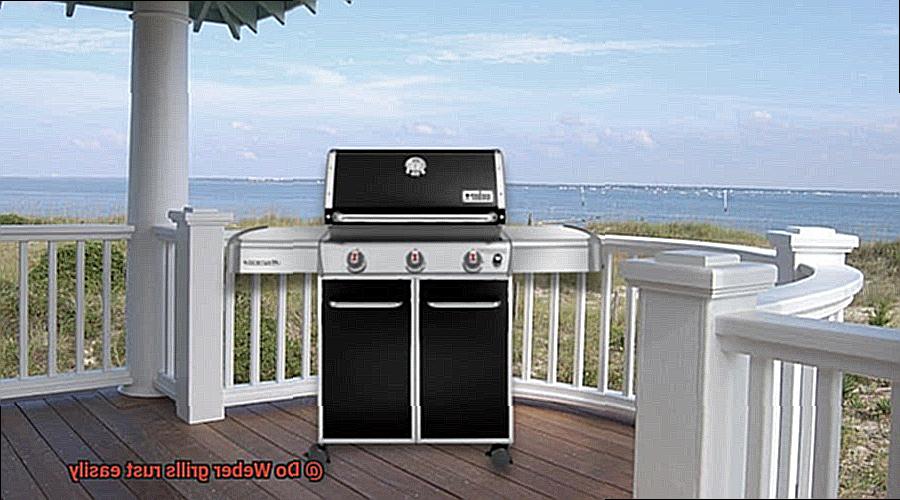
Weber grills are built to last with their high-quality construction and use of materials like stainless steel and porcelain enamel coatings. Stainless steel is an excellent choice for outdoor appliances because of its resistance to rust and corrosion. Porcelain enamel, made of glass powder that fuses to metal, creates a smooth and durable surface that resists rusting.
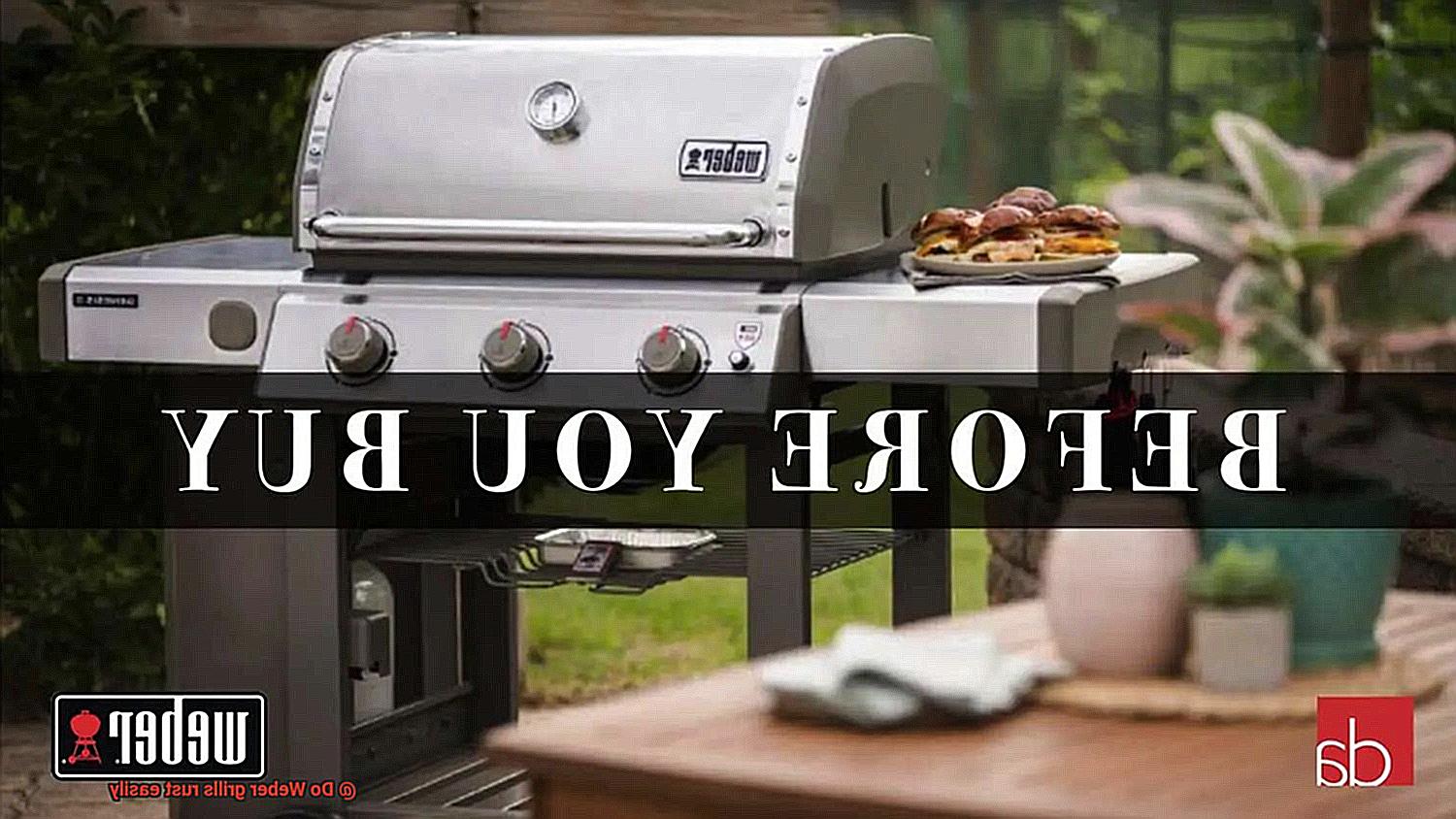
Despite these high-quality materials, several factors can contribute to rust formation on Weber grills. Exposure to moisture and salt, temperature changes, and poor maintenance can all increase the risk of rusting. Leaving the grill uncovered during rain or snow can cause moisture to accumulate and accelerate the rusting process. Using abrasive scrubbers or harsh chemicals can scratch the surface, making it more vulnerable to rust.
To prevent rust from forming on your Weber grill, it’s essential to keep it covered when not in use and clean it regularly using only mild soap and water or specialized grill cleaner. Avoid using metal brushes or abrasive scrubbers on the cooking grates as they can scratch the surface and make it more susceptible to rust.
What Materials Are Used to Make Weber Grills?
Weber grills are renowned for their durability and longevity. Their secret lies in the quality of materials used in their construction. Weber utilizes a combination of high-grade stainless steel, cast iron, and porcelain-enameled steel to make their grills withstand years of heavy use and harsh outdoor conditions.
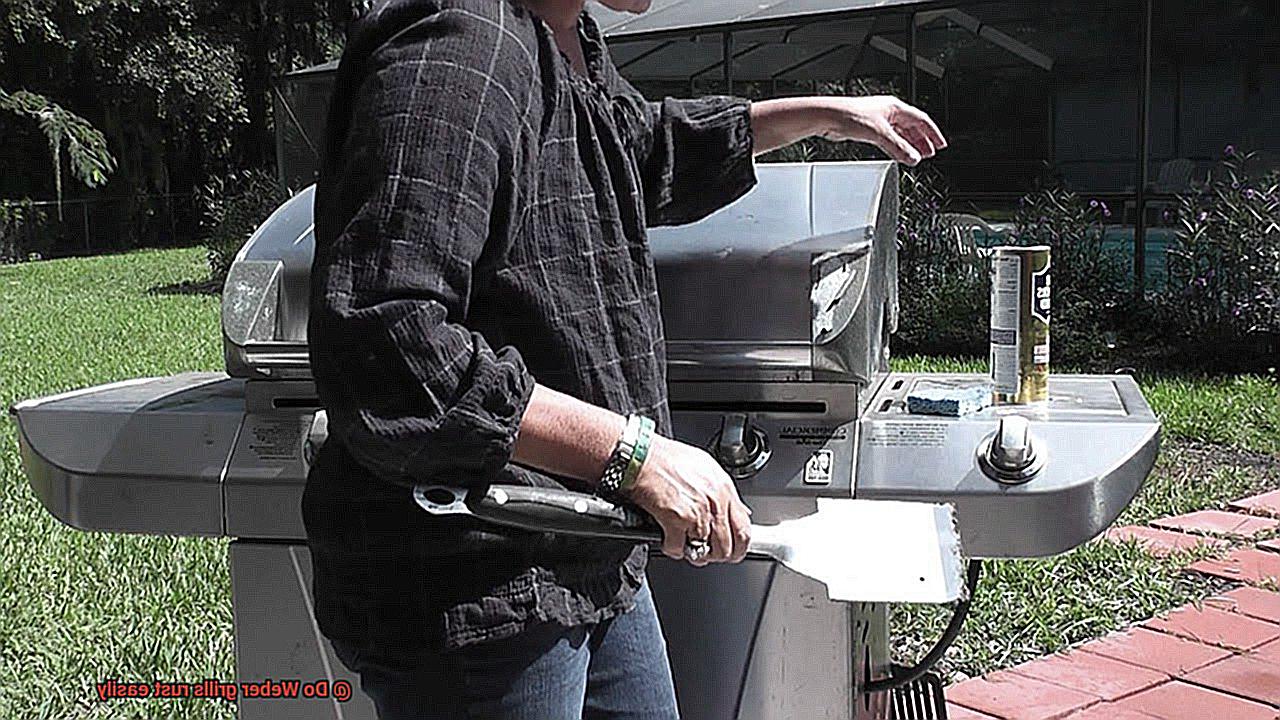
Stainless steel is the primary material used in Weber grills. This premium steel is highly resistant to rust and corrosion, making it ideal for outdoor cooking. Weber uses a top-quality stainless steel that can withstand years of use and exposure to the elements. It is used for the cooking grates, burners, and other critical components of the grill.
In addition to stainless steel, Weber incorporates cast iron into some of its grills. Cast iron is known for its exceptional durability and heat retention capabilities, making it an excellent choice for cooking grates and other components that need to withstand high temperatures.
Another material used in some Weber grills is porcelain-enameled steel. This material provides a non-stick surface that makes cleaning easy while also being resistant to rust and corrosion. It’s perfect for outdoor grilling since it can withstand harsh weather conditions.
Overall, Weber uses only the highest quality materials in its grills. They are designed to withstand the elements and provide reliable performance year after year. With proper care and maintenance, these grills can last for decades without rusting or corroding.
Factors That Can Contribute to Rusting
As any grill master knows, rust can be a real buzzkill when it comes to summer barbecues. That’s why it’s crucial to understand what factors can contribute to rusting and take steps to prevent it from damaging your beloved Weber grill.
First and foremost, moisture and humidity are the primary culprits behind rust formation. Leaving your grill out in the rain or storing it in a damp environment can allow moisture to seep into the metal and cause corrosion over time. To avoid this, always cover your grill when not in use and ensure that it’s stored in a dry, cool place.
Another factor that can contribute to rusting is exposure to salt. If you live near the coast or use your grill near saltwater, the salty air can cause rust to form on your grill. Salt is a corrosive substance that can eat away at metal over time, so it’s essential to keep your grill clean and dry after each use. This will prevent salt build-up and corrosion from taking hold.
The type of metal used in your Weber grill can also play a significant role in its resistance to rust. Stainless steel is known for its durability and resistance to corrosion, making it less likely to develop rust than a grill made from cast iron or other metals. However, no matter what material your grill is made of, regular cleaning and maintenance are crucial for preventing rust.
Finally, how well you care for your grill can directly impact its susceptibility to rusting. Regular cleaning and maintenance, such as wiping down the grates after each use and covering the grill when not in use, can help prevent moisture from building up and causing rust formation.
How to Prevent Rust on Your Weber Grill
Weber grills are the epitome of outdoor cooking equipment, but even the best grill can fall victim to rust if not maintained properly. To keep your Weber grill in top condition, follow these tips and tricks to prevent rust and ensure its longevity.
Keep Your Grill Clean and Dry
After each use, it is essential to clean your grill thoroughly to remove any food debris or ash. Then, make sure to wipe down the grates and surfaces with a dry cloth or paper towel to remove any moisture. Moisture is one of the primary culprits of rust formation, so keeping your grill dry is crucial in preventing rust.
Invest in a Quality Grill Cover
If you live in an area with harsh weather conditions or high humidity, investing in a quality grill cover is a must. A well-fitted cover will protect your Weber from rain, snow, and other elements that can cause rust to form. Ensure there are no areas where water can collect on the cover as it can seep through and cause rusting.
Season Your Grill
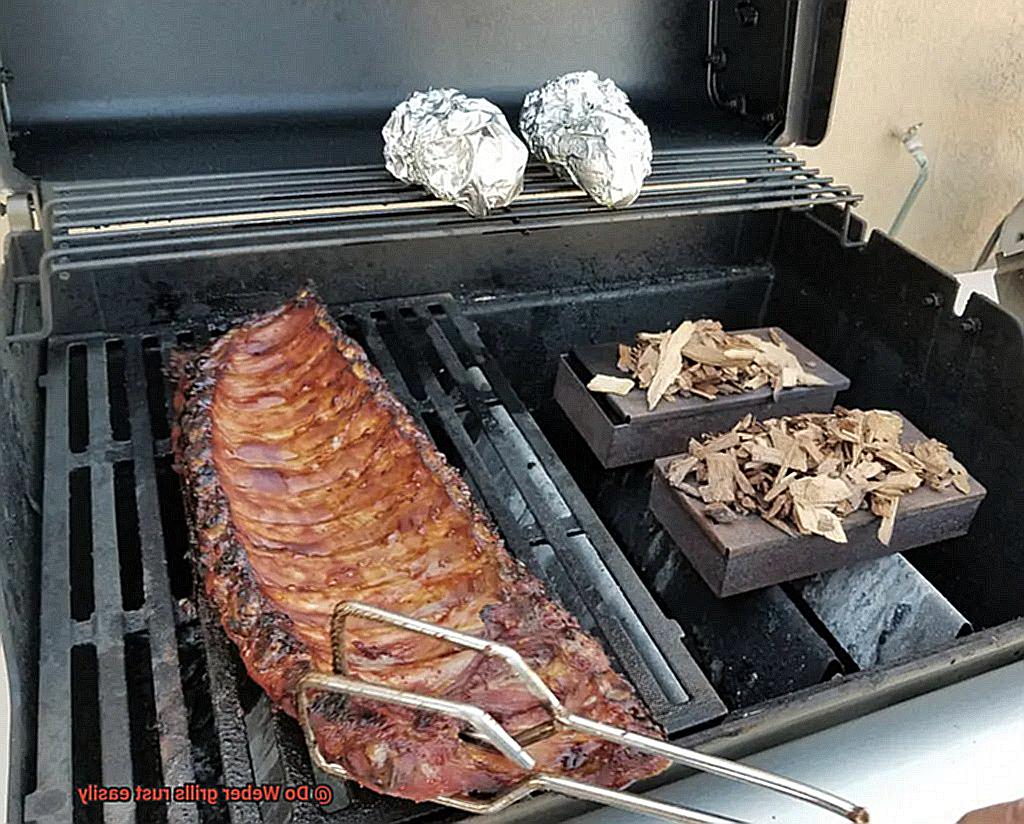
In addition to enhancing the flavor of your food, seasoning your grill creates a non-stick surface that helps prevent food from sticking while also acting as a barrier against moisture. Before heating up your grill, coat the grates and interior surfaces with oil or cooking spray.
Use Mild Cleaners
Avoid using abrasive cleaners or steel wool on your grill as they can scratch the surface and expose it to moisture, leading to rust formation. Instead, use a mild soap and water solution or a specialized grill cleaner to clean your grill thoroughly.
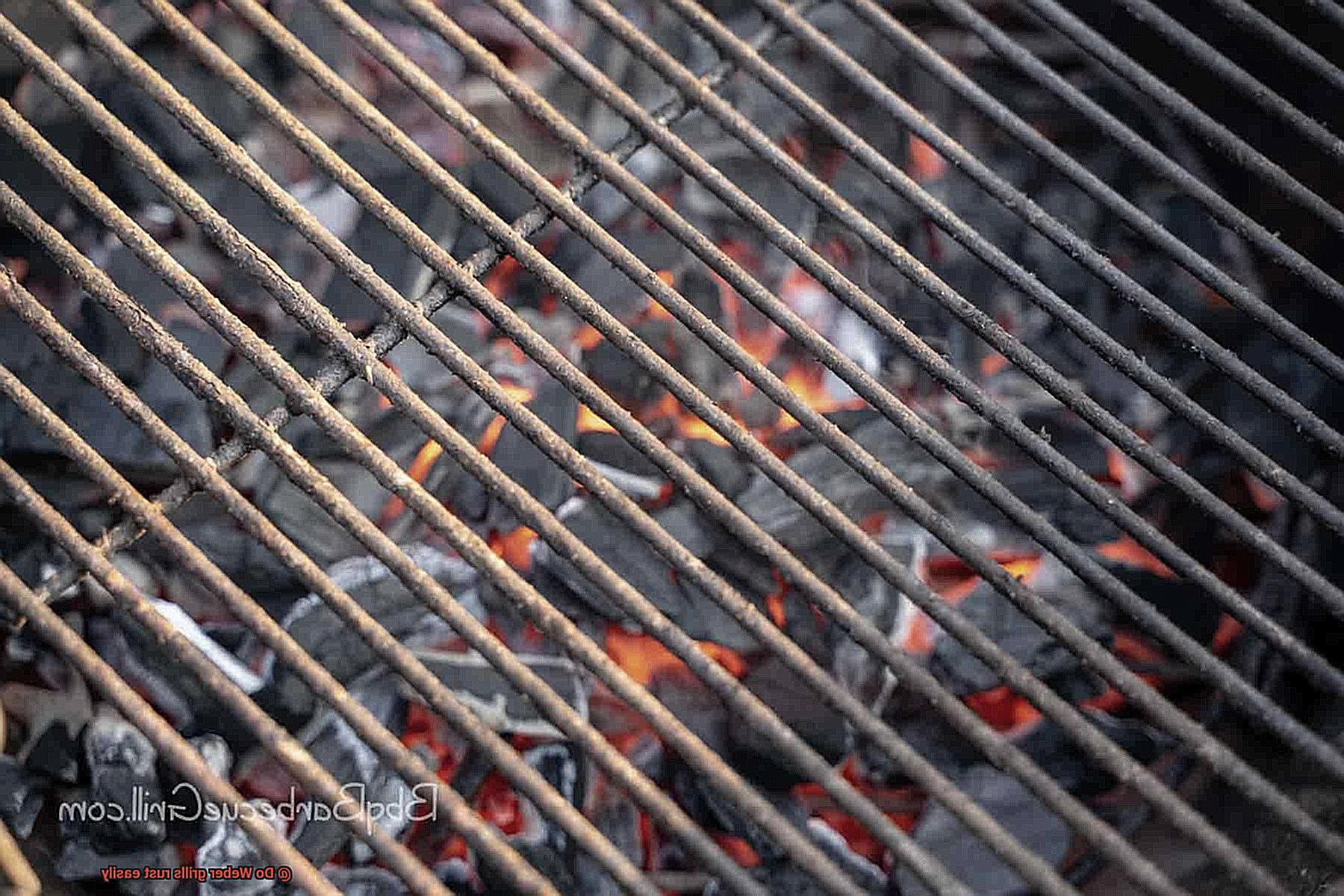
Inspect Your Grill Regularly
It’s essential to inspect your grill regularly for signs of rust or wear. Catching these issues early can prevent them from becoming more serious problems down the line. If you notice any rusty spots, use sandpaper or a wire brush to remove the rust and apply a high-temperature paint or rust inhibitor to prevent it from spreading.
Caring for Your Grill’s Cooking Grates
Grilling is not just a cooking method, it’s a way of life. But to keep your Weber grill in top condition, you need to take care of its essential components, including the cooking grates. Over time, these grates can accumulate grease, food particles, and rust, leading to corrosion and deterioration. Here are some practical tips for caring for your grill’s cooking grates.
Step 1: Clean After Each Use
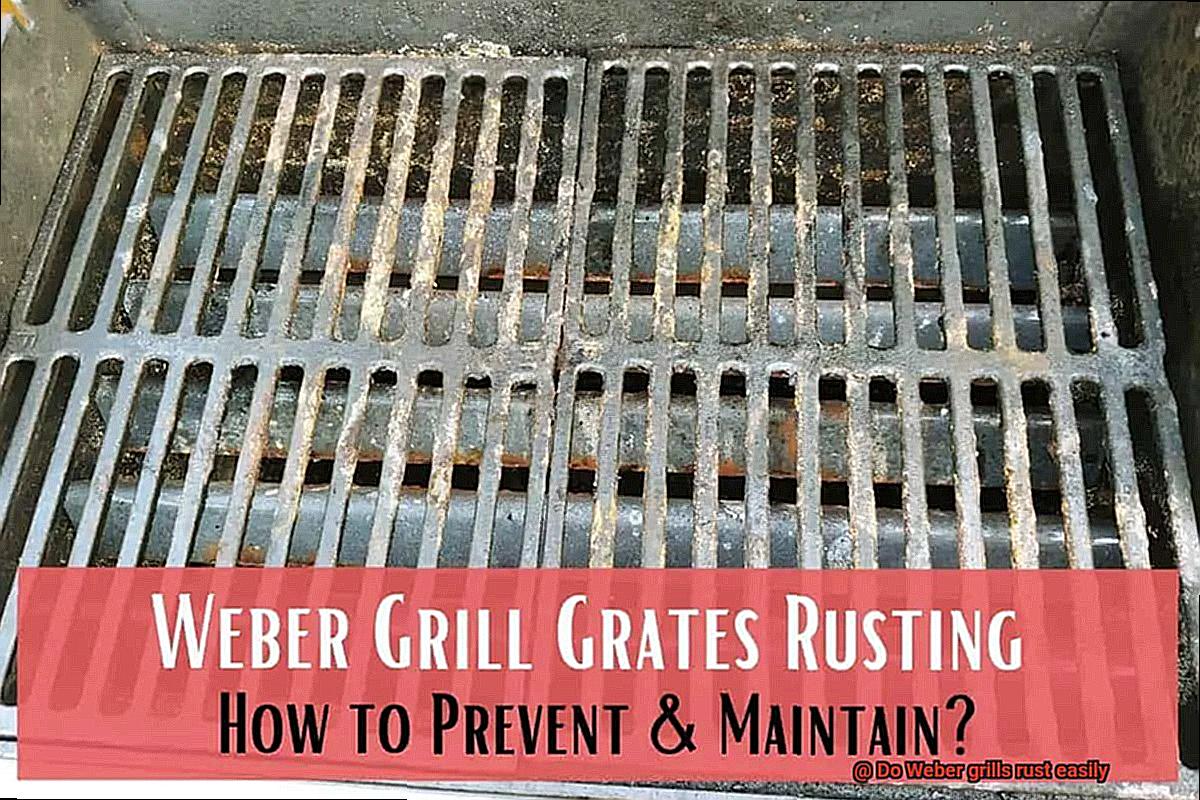
Cleaning your grill grates after every use is crucial to maintaining their longevity. Use a wire brush or grill scraper while the grates are still hot to remove any stuck-on debris and prevent rust from forming. This simple step can go a long way in preserving your grill grates.
Step 2: Oil Before Each Use
To protect your grill grates from rust and ensure that food doesn’t stick to them, it’s essential to oil them before each use. Apply a small amount of vegetable oil or cooking spray to a paper towel and rub it over the grates. This creates a protective layer that keeps your grates in top condition.
Step 3: Deal with Rust
Rust on your grill grates can be a cause for concern, but it’s not necessarily the end of the world. If you notice surface rust buildup, use a wire brush or grill scraper to remove it, then apply a layer of vegetable oil or cooking spray to the grates. For more severe rust, try using a rust remover solution or replacing the grates altogether.
Step 4: Season Your Grates
Seasoning your grill grates is not just for flavor; it’s also an effective way to protect them from rust and extend their lifespan. Heat up your grill to high heat, turn it off and let it cool for a few minutes. Rub the grates with a paper towel dipped in vegetable oil, then heat up the grill again for 15-20 minutes. This creates a non-stick surface that protects against rust and makes cleaning a breeze.
Cleaning and Maintaining Your Weber Grill
Grilling is a beloved pastime for many, but keeping your Weber grill in tip-top shape requires proper maintenance. Rust and corrosion can quickly ruin your grill and your summer cookouts, but with a little effort, you can keep it looking and functioning like new. Here are some helpful tips to clean and maintain your Weber grill:
Clean after each use: After each grilling session, be sure to clean your grill thoroughly. Remove any excess food particles and grease from the grates and interior surfaces using a wire brush or scraper. Then, wipe it down with a damp cloth or sponge to prevent buildup and corrosion.
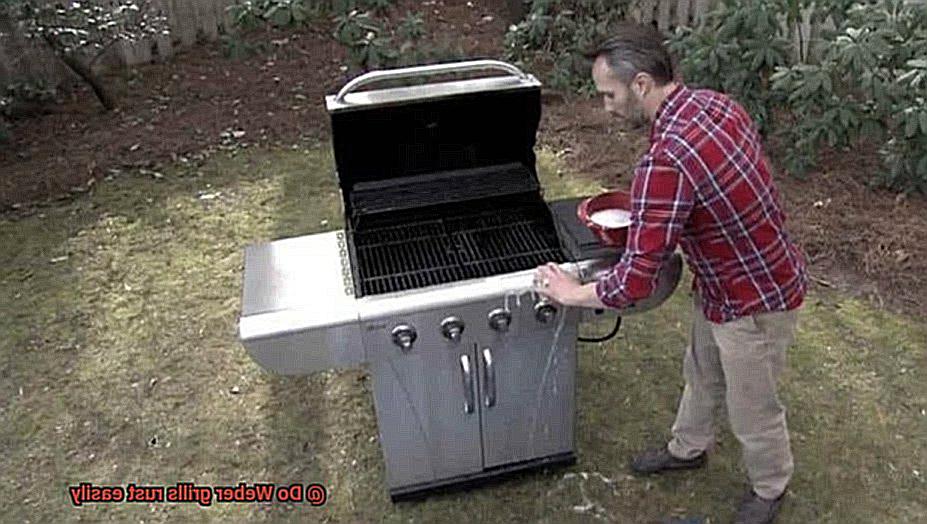
Protect from the elements: If you store your grill outside, invest in a high-quality cover to protect it from rain, snow, and other harsh weather conditions. Additionally, avoid leaving your grill in damp or humid environments for extended periods of time.
Regular inspection: Regularly inspect your Weber grill for any signs of rust or corrosion. If you spot any areas that appear to be rusting, take immediate action to prevent further damage. This may involve sanding down the affected area and applying a rust-resistant paint or coating.
Oil the grates: Before each use, oil your grates to prevent food from sticking and protect against rust and corrosion.
Keep it covered: When not in use, always keep your Weber grill covered with a high-quality cover to prevent dust, dirt, and other debris from accumulating and contributing to rust and corrosion.
Protecting Your Grill From the Elements
To keep your grill in top condition, consider investing in a high-quality cover made of durable, waterproof material that can withstand harsh weather conditions. A snugly fitting cover is key, but be sure to avoid covers that are too tight or too loose, as this can cause moisture to build up inside the grill.
In addition to using a cover, finding a covered area such as a garage or shed can provide extra protection for your grill when it’s not in use. If this isn’t possible, consider investing in a portable shelter or canopy to shield it from rain, snow, and other elements. Protecting your grill from rust and corrosion not only helps extend its lifespan, but it also ensures your food remains safe and flavorful.
Cleaning your Weber grill regularly is another crucial step in protecting it from the elements. After each use, wipe down the exterior of the grill with a dry cloth to remove any excess moisture that may have accumulated inside. Allowing your grill to air dry before covering it will help prevent moisture buildup and rust formation.
Lastly, proper storage during the off-season is key to maintaining your Weber grill’s condition. Before storing it away, make sure it’s clean and dry, and all components are properly secured. Applying a protective coating to the metal components can also prevent rust from forming while in storage.
yuDwSi458Ro” >
Conclusion
To sum up, Weber grills are widely known for their exceptional durability, versatility, and performance. Although they feature top-notch materials such as stainless steel and porcelain enamel coatings, rust formation can still occur due to various factors. Exposure to moisture and salt, temperature fluctuations, and insufficient maintenance can all contribute to rusting. But fret not. With proper care and upkeep, these grills can last for decades without any signs of corrosion.
Preventing rust from forming on your Weber grill requires a few essential steps. Firstly, make sure to cover it when not in use and clean it regularly using mild soap and water or specialized grill cleaner. Avoid using metal brushes or abrasive scrubbers on the cooking grates as they can scratch the surface and make it more susceptible to rust.
Caring for your grill’s cooking grates is also crucial in extending its lifespan. Cleaning after each use, oiling before each use, dealing with rust buildup, and seasoning your grates are practical tips that protect against corrosion.
Furthermore, protecting your grill from the elements is equally important in preventing rust formation. Invest in a high-quality cover made of durable material that fits snugly over your grill. Find a covered area or invest in a portable shelter or canopy for extra protection if possible. Lastly, cleaning your grill regularly and properly storing it during the off-season will help maintain its condition for years to come.

